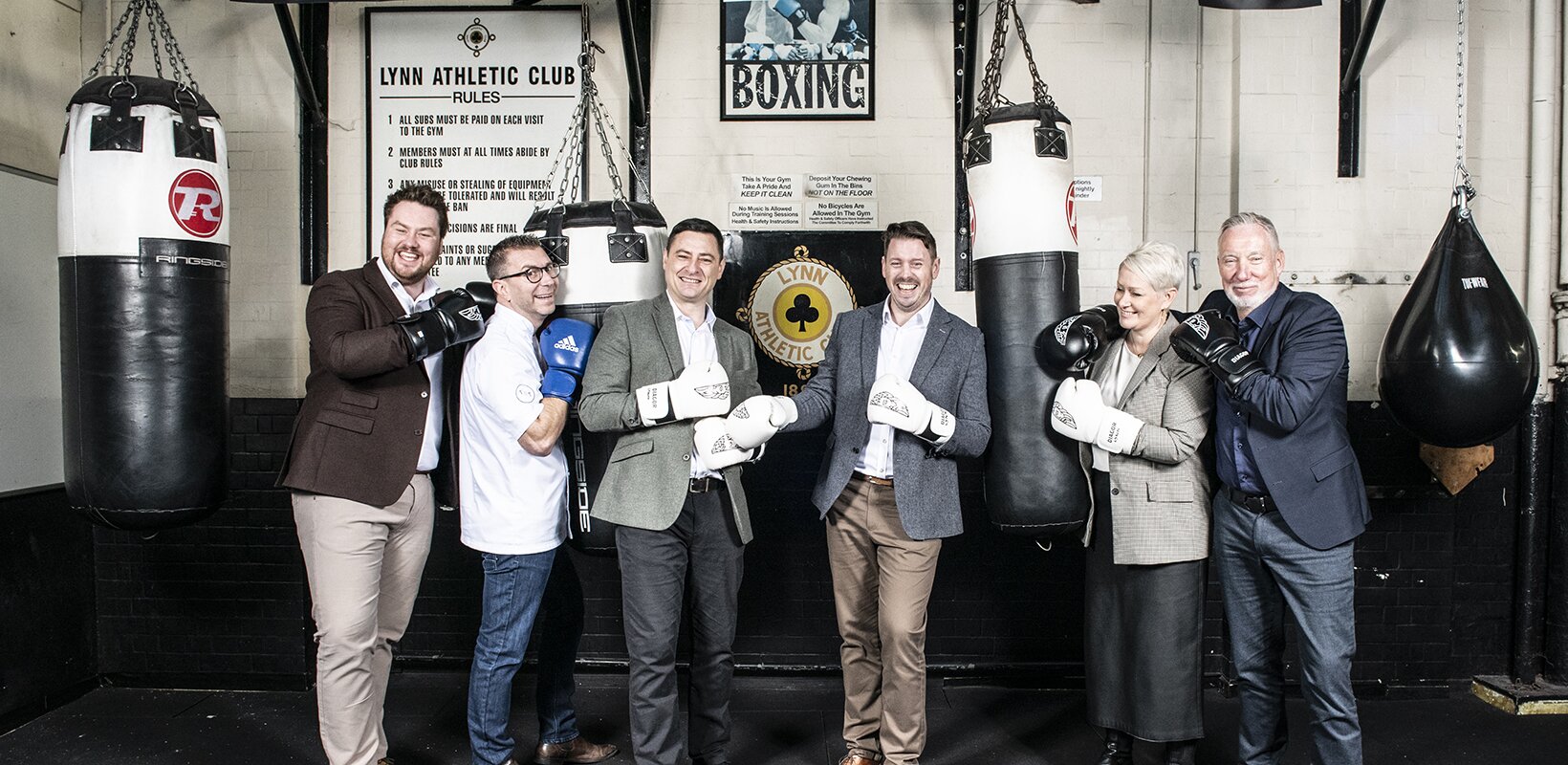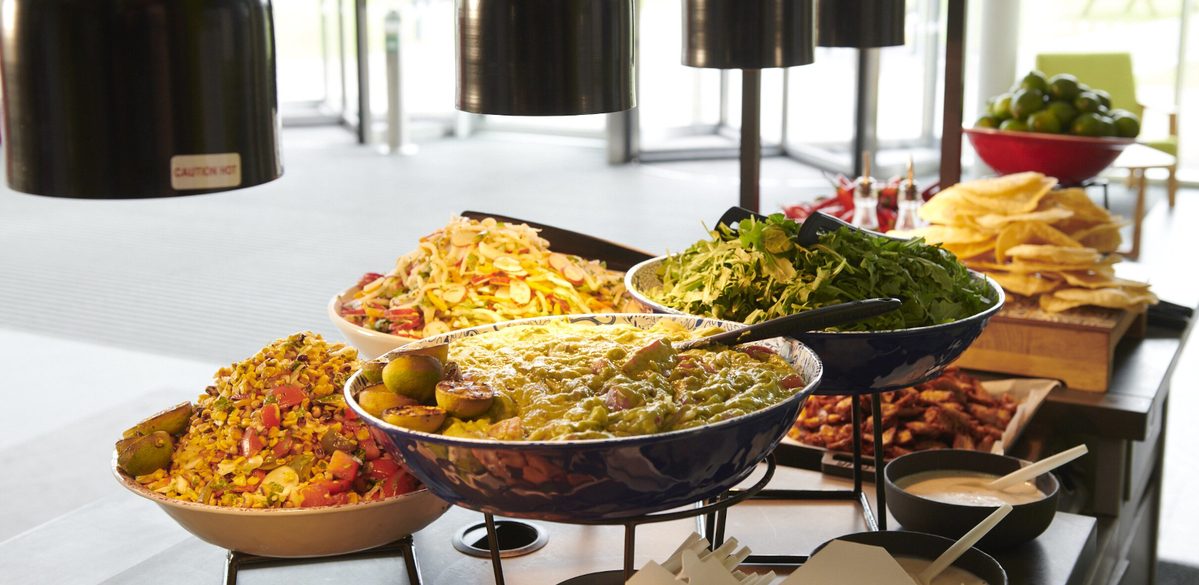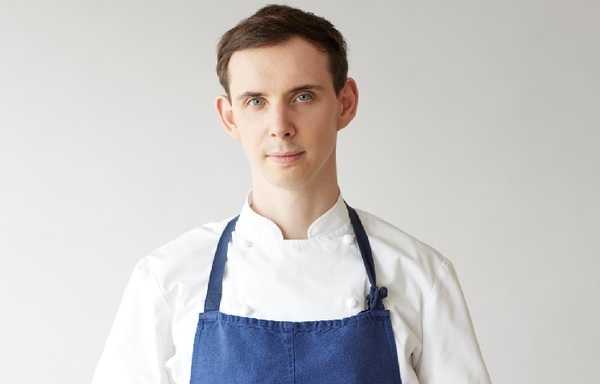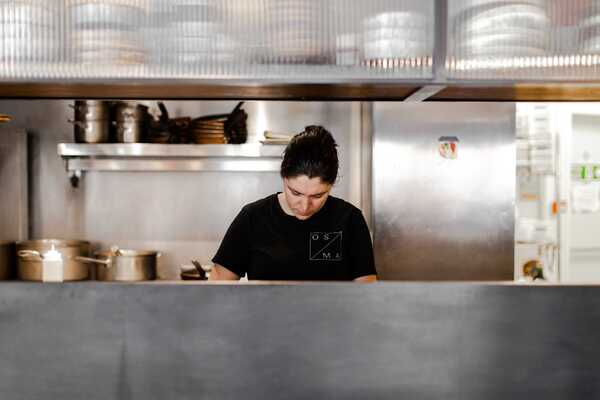The new boutique contract caterers punching above their weight
The launch of several boutique contract caterers after a lack of new entrants since before Covid marks a change in the climate and fresh opportunities there for the taking
In the past year or so, a number of fledgling boutique contract caterers have entered the market, including Savore, Pinch, Thomas & Tate and Eat Social. This is worth attention mainly because, apart from Houston & Hawkes in 2019, there have been few newcomers in a sector that has traditionally been a hotbed for entrepreneurs – think Bartlett Mitchell, Vacherin, BaxterStorey and so on.
The slowdown began before Covid, so it begs the question: what opportunities are start-ups seeing in the market, and why now? And should the bigger players be worried about this new competition?
One trigger is that pre- and post-pandemic, longstanding independent caterers have been swallowed up by conglomerates. To name a few, CH&Co has absorbed Vacherin, Company of Cooks, Blue Apple and Pabulum, while WSH now comprises BaxterStorey, Holroyd Howe and Caterlink and merged with Bartlett Mitchell in 2020; Aramark bought Graysons earlier last year and Compass Group acquired Dine in 2019.
This has created a gap in the market for smaller, versatile operators – particularly in the workplace sector, which post-Covid has seen uncertainty and a trend towards employees working differently, or from home.
As Christina Ronsyn, managing director at Eat Social (see panel), which launched in October, says: “Opportunities have sprung from the seismic shift in the approach to work. Employers now need to be hyper-focused on bringing teams together in the workplace, creating a social, collaborative space over a few days rather than across five. Elevating their employees’ experience at the office is essential in drawing people back, and a high-quality F&B provision should play a large part.”
She argues that many clients want a collaborative, nimble and evolving partnership. “They want solutions that grow with them to help foster a connected and social workplace where employees want to spend time.”
This is a common thread. The co-founders of Pinch, Katy Thompson and Alan Beddie, which launched in June, agree: “We identified the speed of change in the marketplace and the subsequent need for fresh thinking and flexibility post-pandemic,” says Thompson. “There was a lack of recent start-ups… and a growing number of clients looking to re-connect with a more personal business and culture.”
Those mergers and acquisitions of caterers also arguably disenfranchised individuals with an entrepreneurial spirit. “When the wheels of M&A turn, there will be inevitable churn in the market at all levels,” says Beddie. “Some people are well-suited to the big corporates, whereas others like the dynamism of an SME.”
How the new catering startups start
Inevitably, some of the new startups are being backed or set up by those who honed their careers with the independents. They understand this niche market and don’t want to be part of a big machine after merger. For instance, prior to founding London-based Savore (see case study) in late 2022, Dan Kelly was food director and deputy managing director of Vacherin, overseeing what became an £80m turnover portfolio across 90 sites before its merger with CH&Co in 2020. Vacherin’s co-founders Clive Hetherington and Mark Philpott have subsequently invested in Savore.
As Hetherington says: “Many things have changed since 2002 when we started Vacherin, but there is still a desire for entrepreneurial flair in the delivery of bespoke service and fabulous food, which remains unfulfilled by the corporate approach of many of our competitors.”
This chimes with Thomas Pass, who co-founded Thomas & Tate (see case study) in September with Sam Tate: “The real opportunities are where [independents] have merged and their clients now have [to work with] large organisations where they wanted something more bespoke,” says Pass. “What has come through in the past few years is that people place great value on being able to speak directly to the decision-makers rather than deal with a big company.”
Tate adds: “When we came out of Covid, the market became more price-driven, so it was [initially] easier for the big contractors. But now, it is an employee-led proposition and that lends itself to smaller, quality catering operators.”

Infrastructure needed to run a catering business
Bureaucracy, even before Covid, has deterred new players, too, as Pass explains: “The world has been against growth for the past eight years or more thanks to the demands of, for instance, Natasha’s Law, and the infrastructure needed to employ people safely. Having good systems is hard to achieve, so that is one reason why people haven’t entered the market.”
But these new B&I caterers are bullish about today’s opportunities. “Choices were limited if clients wanted to partner with a smaller, premium provider,” says Kelly. “This has created an opportunity for emerging boutique businesses. We bring new energy, USPs and ideas into the marketplace; this helps to create differentiation, a focus away from price and, in turn, gives clients more options. This is essential as clients today demand value, and it’s not just about the numbers – it’s about everything else we do to support them.”
Pass is equally upbeat: “There is enough business for everyone. If you look at the independents, we’ve all got something different.”
There is one thing they all have in common, however. In a world where sustainability and community policies can make or break a partnership, all the start-ups are keen to stress they have strategies that reflect this.
They also argue that a new competitive landscape is emerging. “The days of the big companies doing the big contracts and the little companies doing the little ones are well behind us. We are essentially competing with everyone,” says Ronsyn.
There has always been a cycle of niche start-ups that grow and then sell or merge with bigger players. But this new generation claim they are different. “We are not in this for the short term,” says Tate. “And we prefer to grow organically.”
Kelly puts it in a nutshell: “There is never a guarantee that the business you work for will not sell, especially if you help them grow – which is one of the reasons why I started Savore. But, having been a pawn in that game, I’m definitely in this for the long-haul. I’m looking to create a lifestyle for myself and our people.”
Safe pair of hands: Thomas & Tate
B&I caterer Thomas & Tate was set up by Thomas Pass, Sam Tate and Adam Nossek in September last year and landed its first contract in November, feeding 300 people just outside London.
Pass has strong entrepreneurial credentials, having won the Newcomer Catey 2023 for the launch of education caterer Culinera in 2020, which he financed by mortgaging his house.
He now has 27 contracts, 250 employees and a predicted turnover of £15m this year.

He describes Thomas & Tate as having the “power of three”, citing they each have complementary experience. Pass honed his business skills in BaxterStorey’s head office, going on to sales at Caterlink and Searcy’s. Tate moved from being a chef at Angela Hartnett’s Murano to BaxterStorey as a hospitality chef, becoming regional director overseeing a business portfolio of more than £35m. Nossek, who previously held culinary director roles at WSH and Impact Food Group, is now one of the few culinary directors who sits on a board – an advantage for a food business.
Notably, Thomas & Tate doesn’t have financial backers, with Pass, Tate and Nossek all investing in its working capital. But it is underpinned by Culinera’s reputation and resources.
“We have been successful quickly because clients know we are a safe pair of hands,” says Pass: “Our USP is that we three work in the business. A lot of start-ups in the past four years are backed by individuals who are not in the business, but here the board are the owners. Clients know we’re not in it to just build and sell – we are the decision-makers.”
This tallies with what won them their first contract. “We look at every aspect of a contract in detail rather than do a cut-and-paste job. We can do that because we’re small and have researched the market,” says Tate, who recalls William Baxter and Alastair Storey’s mantra of: “get the detail right and you’ll get the rest right”.
The trio, who are pursuing B Corp accreditation, also want to build a legacy through training staff. “Gardner Merchant and Sutcliffe’s management training schemes created leaders who came through the ranks. We want to do the same thing.”
With an office in Amersham, the team have access to London, the M40 and M25, which opens up the Home Counties. But their strategy is clear. “In year one we envisage getting seven to eight contracts. We don’t want unmanaged growth as that is bad for clients,” says Tate. “We may move into other sectors as we grow, but it is preferable for us to be in charge of our own destiny.”
Savore punches up
Savore, which emerged on the London B&I scene in late 2022, gained its first contract last March, signing a five-year deal with a global consultant’s UK head office to provide a restaurant, barista coffee service, events and hospitality for 1,350 employees.
Its founder is chef-turned-operator Dan Kelly, who was food director and deputy managing director at Vacherin, which merged with CH&Co in 2020. He subsequently attracted investment from Vacherin’s co-founders – Mark Philpott, who is non-executive chairman of Savore, and Clive Hetherington.
Philpott describes the market as “receptive to boutique companies” and Kelly agrees: “Based on the interest we’re getting, it is clear there is confidence in employing younger, boutique companies for businesses to ensure they get the perfect fit for themselves and their people. What gives us our USP is being the only foodservice caterers owned and led by a career chef. This, coupled with our laser focus on London, is what makes us unique.” Staying on-trend is key, as Kelly sees Savore’s competition as being the high street. “At our recent location, we have every offer you can think of within 50 yards of the door, so we are competing every day to keep our customers in the building. We are succeeding, as the increased sales are evidence.

Kelly stumbled into the B&I sector when the business he was working for was acquired by Charlton House. He worked up to an executive chef role at a London law firm contract to provide Michelin-standard fine-dining and a multi-outlet retail offer for 2,000 employees. This, along with his time at Vacherin, means he and his team are experts in London’s B&I sector.
“While we wouldn’t rule out branching into other sectors, we see this as our core business,” says Kelly. “Focusing on London means our support and inspiration teams are close-by and not spending time trying to flex their expertise in areas they don’t have knowledge of. This enables us to be quick, efficient and agile.”
The best of the rest
Pinch
Katy Thompson and Alan Beddie co-founded Pinch in June, both having worked through the ranks of independents: Thompson through Harbour & Jones and then as managing director of Venues at CH&Co; Beddie through the likes of Baxter & Platts, including board positions at Harbour & Jones and Wilson Vale. In addition, the company’s chief executive Nathan Jones co-founded Harbour & Jones in 2004 before merging it with CH&Co in 2017.
This experience brings a robust network of potential staff, clients and suppliers, and they have a strong cultural identity, too.
“We are fiercely independent, collaborative, up-close and personal,” says Thompson.
“We have a long-term focus on every relationship and want to build our business in a sustainable way and to share the benefits with everyone connected with Pinch.”
Specialising in the workplace, fixed venues and education sectors, the team use their specialist expertise and cross-fertilise knowledge. With a focus on the Midlands, London and the South, they already have two contracts, eight live projects and a target to have four by Easter and six in the next year.
As for competitors, they believe the big six own a disproportionate amount of the sector. “Large company culture is boring,” says Beddie, adding that Pinch will engage with “everyone, big or small – there is plenty of business to go around.”
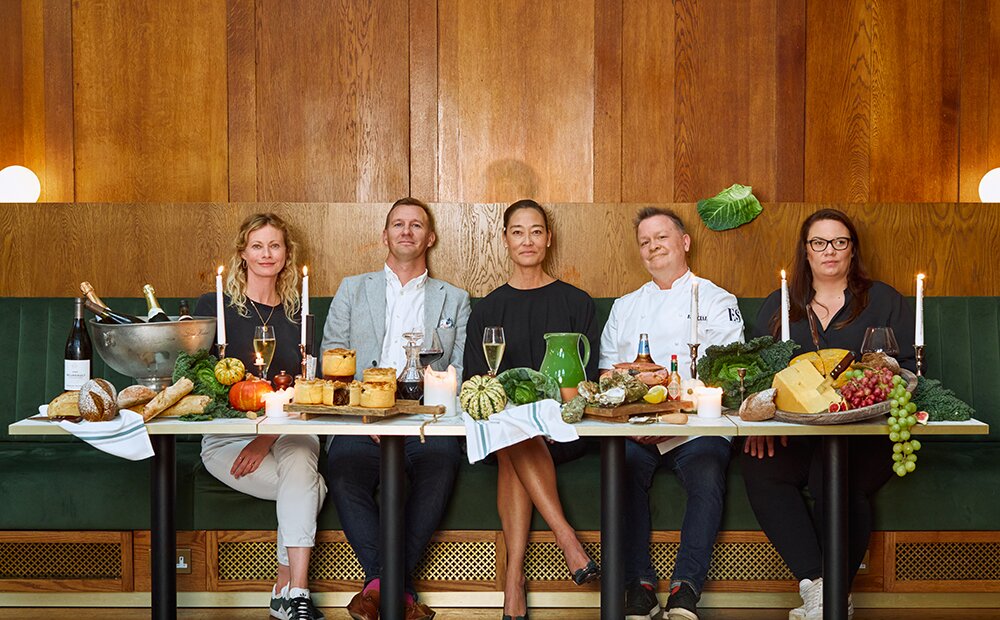
Eat Social
Eat Social is one of the newest kids on the block, having launched in October [2023]. Its leadership team, headed by managing director Christina Ronsyn and operations director Simon Wade, are using their experience outside traditional contract catering to regenerate food and engagement in workplaces. Significantly, the start-up is part of Two Hands Group, which operates cafés in flexible workspaces in the UK, the Hague and Brussels and a restaurant, Dorothy and Marshall, in Bromley, Kent.
“What sets us apart is our 360-degree approach. We’ve moved away from the transactional nature of foodservice and focused on delivering restaurant-style hospitality,” says Ronsyn, who has a background in real estate, restaurants and members’ clubs.
Wade’s time leading the F&B strategy for WeWork, a global flexible workplace company, brings a different commercial mindset: “Many companies, from one to 10,000 employees, put F&B at the heart of employee engagement and return-to-work strategies, but they need flexible solutions to meet the different approaches to the workplace,” says Ronsyn.
Potential contracts are in the pipeline, and while the initial focus is on gaining B&I business in London, Eat Social is well placed to take regional opportunities, thanks to the Two Hands’ café network.



